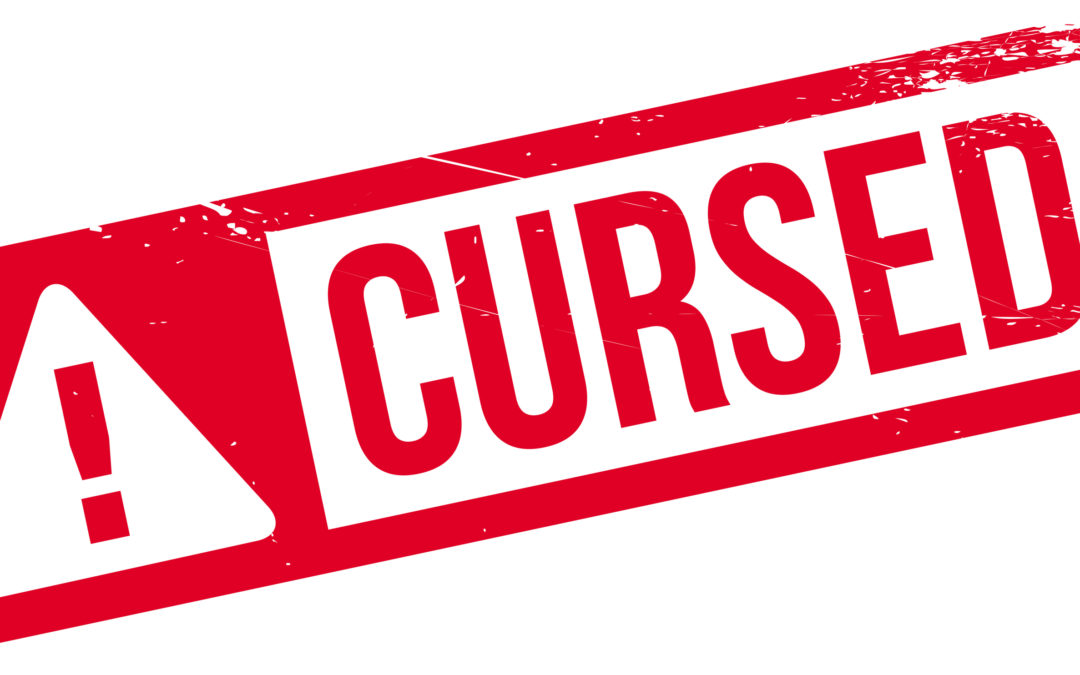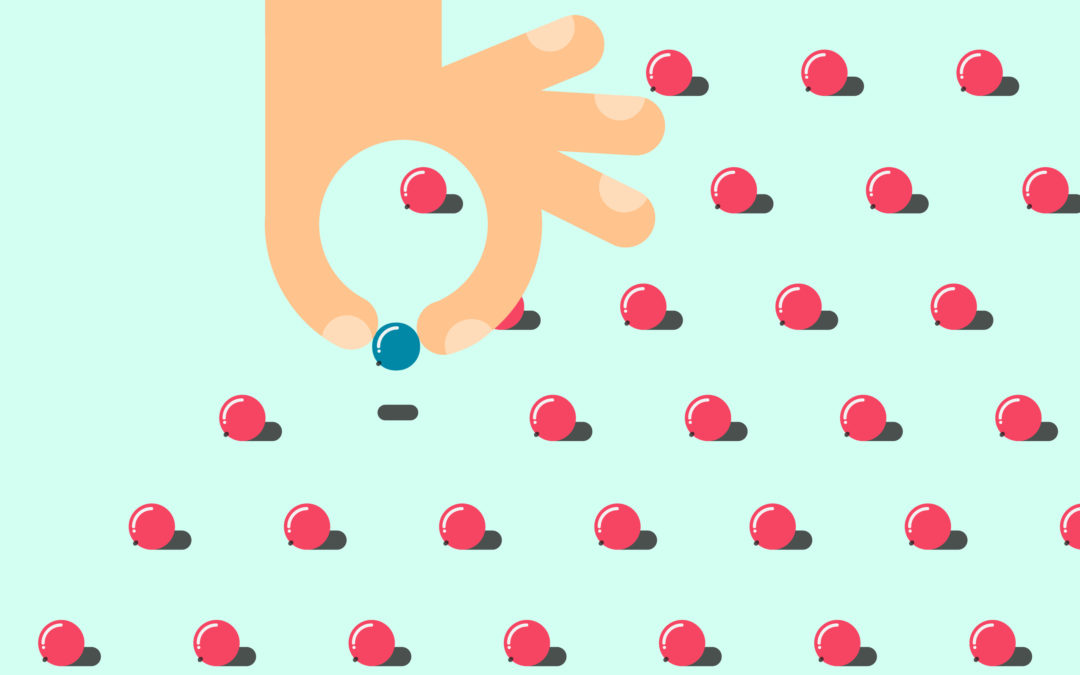
Not My Curse
I watched The Dressmaker last night. The good news: it’s free with Amazon Prime right now. The bad news: it’s full of trauma triggers. There’s rape, murder, death, bullying, domestic violence, drugs, alcoholism, dementia, mental illness, religious oppression, knives, fire and mice. It is a hard movie to watch. But I was pulled in by the relatively accurate portrayal of memory repression and recovery (despite her having an unrealistic amount of help with remembering). Without giving away too much, she came back to her hometown after experiencing intense trauma as a child at the hands of others. And the only question she wanted to answer was, “Am I cursed?” She experienced horrible abuse and her concern was if she was the problem. In the end, her mother clears that up in one short but poignant speech to the townspeople. The victim of a traumatic crime is not cursed. Those who perpetrate it, enable it or allow it are the cursed. But for those of us with repressed memories, that is not an easy message to take in.
When we grow up with childhood trauma, we don’t interpret those traumas as an adult would. We desperately try to find an explanation that meets our understanding of the world around us. We see others with normal lives. We hear that we are being punished. We learn that we are not good enough through the statements and actions of others. We are told over and over again that we are the problem. And we may begin to see ourselves as cursed. How else could these things happen? When we reach adulthood, we may be able to diffuse some of these thoughts with our logical mind, but deep down in our unconscious, these beliefs remain. They live with the memories we have repressed. They live with the emotions we have suppressed. And when it comes to trauma, we have generally done one or both of those things. The only way to truly break our patterns is to dig deep into our painful past, pull up the traumatic experiences and reinterpret them with our adult understanding of the world. Anything else is just a cover, a mask.
In my own life, I have become painfully aware of how my own belief that I am cursed has played out in my adult life. But honestly, I have only become aware of this because I have recovered the memories and brought the unconscious into the light. Seeing the way my life was ravaged by this unconscious understanding has brought its own grief of time lost along with anger at how my inner child was tricked. But the only thing I can do about it now is live the rest of my life with a new understanding while doing my best to share how it can be healed with others. Awareness is the key so here are some patterns which had infected my own life.
I refused to do anything that made me visible or successful. For someone who believes they are cursed, there is nothing more dangerous than visibility. It calls forward all the potential punishers whether they are abusers or the universe. And others always have power over those who are cursed. So visibility and success means an inevitable takedown. Trying hard to build up a particular talent, platform or business becomes absolutely futile with the cursed mentality in place.
I allowed the slightest disapproval to shut down my plans. A cursed mentality drives a very low opinion of inner wisdom. There is no faith in self because there is something inherently wrong with self. So all creations must be met with approval from the outside world. If they are not, there must be a change of plans. And this is a very frustrating rule to live by because there will always be disapproval. Sometimes the disapproval gets louder with more authenticity.
I didn’t show happiness. Cursed people aren’t allowed to be happy. Someone who feels cursed will desperately try not to show any signs of happiness to others. Even if they feel some happiness deep down, they will try to minimize it within so they are not found out. A person with a cursed mentality will see any objects of their happiness as targets for potential punishers. It is not okay to be reckless with things or people in this way.
I isolated. There are two main reasons why someone with the cursed mentality would isolate. Isolation deters those who want to take advantage of the cursed. But isolation is also a way of protecting others from the cursed. In the most painful scenarios, the cursed mentality might cause someone to drive away the people they love the most. It is a self-protective strategy but it is also a protection of loved ones. And it leads to a very lonely life.
While it is critical for us to understand the conscious beliefs and work to change them, it is almost more important to recognize that our repression may be keeping devastating beliefs out of our consciousness. Without an awareness of what is beneath the surface, we cannot shift our external world. We cannot manifest the life we want. So when you hear that memory recovery is not necessary in healing from our trauma, take the time to question that mentality. Allow yourself to consider how fear might be doing the talking. And take a step toward your memories and your truth. During March, the Survivor’s Guide for Life group will be walking through memory recovery strategies. Come join us and find your way to real freedom.

Reframing the Backslide
As a life coach for trauma survivors, my conversations tend to follow certain themes. It is never boring though. The experiences are vastly different within those themes. And I am always amazed at how my clients work through the maze that is trauma recovery. When I can use those themes to provide new perspectives in recovery for all my clients, I am in the best place as a coach. But this work can be difficult. And there is one statement I hear repetitively from most of my clients.
“Why do I feel worse than I did since I started this recovery work? I must be backsliding.”
This is a natural reaction to feeling new emotions for the first time. It can feel overwhelming. If we have been dissociated, it can feel like it is coming out of nowhere. To our traumatized parts, it can even feel like we are being punished for trying. And society isn’t helping with their persistent messages about the instability of emotions. But when we become emotional, it isn’t a sign that we are getting worse. It is a sign that we are healing. We are coming back into the body where the emotions reside. We are processing the emotions that must be felt and released, so we can heal our trauma and find a more peaceful life. But through our traumatic experiences, we have been taught to look at it the wrong way. So let me discuss three ways we might mistake growth for a backslide.
Our fear of emotion propels us into a panic. We have spent a lifetime afraid of our emotions. There were rational reasons for this in childhood. We were constantly chastised, humiliated and punished for our emotions. We were invalidated by our abusers for feeling anything at all. And when we did try to feel them, our child minds did not have the ability to process those confusing experiences. So we felt overwhelmed. Our choice to shut down our emotions made so much sense at the time. We didn’t have a choice. But those same beliefs and fears about emotions (and their memories) still live in our system. And our inner parts don’t believe anything has changed. Until we can help them to see the differences, these fears can make us see emotion as a very bad thing. And unfortunately, the defenses against emotion can make it feel worse. Imagine a wave hitting a brick wall.
The message within the emotion gets misinterpreted. In many cases, the emotion itself can make us feel like we are backsliding. This is because all traumatic emotions are translated in our minds as being about today. This is how our defenses keep us from addressing the past. So an emotion will come up from the body and the mind will tell a story about it. It doesn’t mean the story isn’t true. It doesn’t mean we aren’t triggered. But the emotion is about so much more than this moment. This is the most impactful when we are dealing with futility. When futility and hopelessness come to visit, your parts are sharing how trapped and worthless they felt in childhood. But your mind will translate that futility to the present moment. Suddenly, your steps toward recovery seem completely hopeless and futile. When in reality, the expression of the futility is what we need to move us to our next step.
The reason for the emotion is misunderstood. As I mentioned earlier, we will often see emotions as punishment or an attempt to hold us back. This is a belief held by the controller who is trying to move forward while constantly being inundated with the past they are running from. Our traumatic beliefs might lead us to believe that our emotions are meant to stop us in our tracks. But our emotions are here to signify a threshold in our healing. Our emotions are here to tell us that something important lies right around the corner. We are about to discover something, overcome something or take a new step forward in life. This emotion is here to release so we can go to new levels. When we can see this emotion as an open door to a new threshold instead of a backslide, it takes some of the pain from the experience.
The next time you feel emotional, don’t let your defenses tell you it is a problem. Don’t let them convince you that your emotions are the enemy. Emotions are a good sign. They are not a backslide. And they are here to bring you forward in your life. It is the defenses that keep you stagnant and unchanged. Real recovery is messy. Anything else is just a theory in the mind. It won’t lead you where you need to go. If you are emotional, you are not backsliding. You are going deeper.

One Day I’ll Fly Away
We live in a world of control. Everyone is trying to control their surroundings, their feelings, other people. This desperate need to control is coming from fear. There is so much fear built up from generations of horrific events. That fear is trying to resolve itself by controlling everything. The more scared we are, the more things we control. And the more we inevitably fail to control, the more we are scared. It is a cycle that never ends unless we consciously end it. But most people on this planet are NOT ending it. Fear is a siren song that sucks us in. It says there is no other way. It says we have no choice. And we have fallen for the message. It runs our lives.
But there’s another side to the desperate control. Honestly, if you are particularly subscribed to the fear side of things, you might not even sense it under the surface. But there is a part of you that is desperately trying to be free from control. This is based on some very grounded concepts of who you are supposed to be. You were always meant to be free. You were always meant to represent your most authentic self. But over time, that grounded understanding of freedom was marred in the traumatic responses to the control. It becomes sabotage. It becomes futility and hopelessness. It becomes nothing of its original glory. It becomes a pipe dream.
Most of us are walking around this world in a constant battle between these two places. We control and we rebel. We rebel and we control. It creates debilitating bouts of anxiety and depression as we try to navigate between them and fail. It is only when we bring awareness to this war that we can finally start finding peace and balance in our lives. But this war isn’t trying to be found. It lives in the unconscious and drives all our thoughts, emotions and behavior. It is very hard to see. So how do we see it? We have to actively look for it throughout the day. We need to track it down in our thoughts that might seem rational and logical, but aren’t. We have to find it in our urges to do things that seem right, but aren’t. We have to connect with our patterns and ask why they exist. What are some of the things you can look for?
How are you controlling your world? Look for ways that you try to keep your environment perfect and predictable. Try to find those thoughts that are expecting life-threatening results for any mistakes. Explore how you stop yourself when something isn’t perfect on the first try. And look for how you control others to be perfect too. This is most likely with your closest family members. Watch for how you control them with your limits, or work impossibly hard to make sure their limits are removed. Explore how it escalates when something scares you. Check in with how you panic when you try not to control something.
How are you holding contracts? Explore your thoughts when you consider stepping back from the extended family dynamics to do what you want. Look for how you stop yourself from being as successful as you want. Look for inner comments about your lack of worthiness when it comes to what you want. Explore how you hold inner language about obligation that is holding you back from your best self. How do you tell yourself that you are selfish if you follow your dreams? Where did this language come from? I promise you didn’t make it up on your own.
How do you try to escape? With all this control and contractual obligation, you will feel the need to escape your life. When you don’t allow yourself to do what you are here to do, you will find yourself needing to escape often. Explore how you may dream of living in a completely different place with different people in a different life. Watch for how you want to escape relationships, parenting, your job. Look for how you run from anything that appears to be controlling you in any way. Try to find how these thoughts come with a hopelessness to ever have the life you want. It is critical to listen to this voice. I am not suggesting you need to move to an island somewhere. But understanding what is driving these thoughts will help you understand how you are still abusing yourself with control and contracts.
This is how we continue our abuse long after our abusers have left our homes and sometimes our lives. We don’t take the actions to live the life we want because we are hopeless, we feel selfish or we feel obligated to something that has never served us in any way. But we can find these thoughts and question them. We don’t want to be mean or accusatory toward these thoughts, but we need to question them and consider new possibilities. As we do this, we can break the patterns and stop the “stuck”.
This morning, my inner parts were repetitively playing “One Day I’ll Fly Away” in my mind. They spent so much of childhood trying to escape a horrible life in any way possible. And they spent my adulthood trying to escape the internalized self-abuse coming from my trauma. But now I can let them escape into a real life, a life without contracts, invalidation and labels of selfishness. It’s my job to give that to them. It’s my job to free myself.

Anxiety and Depression: Our Emotional Defenses
If you have been on this recovery journey for a while, you probably have a sense of how you defend against your emotions. You may have been able to identify some of your strategies. You may have addictions that keep you numbed out from your pain. You might distract yourself with television and social media. You might stay incredibly busy so you don’t have time to slow down and check in with your feelings. You might have sensed some of the ways you dissociate when you are triggered. You might have even noticed your tendency to stay in your head by intellectualizing or manically thinking, ruminating or obsessing about the past and future. But there are defenses which are even more tricky. Even mainstream psychology misses the connection between them and our attempts to disconnect from our emotions. This lack of understanding can lead to hopelessness about our healing. So today, I want to discuss our emotional defenses.
Anxiety
Anxiety is seen as one of the biggest plagues among survivors of trauma. On the “good” days, we run manically around getting all the things semi-done in no particular order before crashing down upon our couch feeling somewhat productive but exhausted while already making a new list in our heads. On the bad days, we sit on that couch feeling paralyzed by our inability to take in even a partial breath while listening to self-criticism we would never allow another person to endure. But no matter what day, there is an underlying feeling that something isn’t right (because it’s not). Something needs to change (because it does). The world is not what it should be. And we have no idea why. And let’s face it, we wake up every morning wondering which day will be which. It is like playing Russian roulette with our days. And all we want is a little peace.
But it doesn’t come. We never seem to be able to find out how to get there. That’s because we aren’t aware of what is happening beneath the surface. Anxiety is what I refer to as the “battle of the parts”. Anxiety is telling us that we have emotions (and likely memories) that need addressing, but our defenses don’t want us to see them. Anxiety is a state of perpetual war between our real truth and the story we are trying to tell ourselves. When we realize this, we can take steps to stop the constant manic distraction and bring the defenses into our conscious mind. When we see them for what they are, when we allow them to express, we can finally get to the source. The source is our truth. And it is desperately trying to be heard.
But how do you know you have anxiety? It isn’t always easy to tell. It can manifest in many ways, but here are some examples. In the body, it can look like heart palpitations, exhaustion, paralysis, struggles with breathing and gut problems. In the mind, it can manifest as manic thinking. We can make endless lists, cycle repeatedly through anger at others, ruminate about the past or obsess about what might happen in the future. Even if you have no body manifestations of anxiety, don’t rule it out. You might be numb to them because of dissociation. If the mind is taking you in circles, consider that anxiety might be one of your defenses.
Depression
Depression will stop us on our journey to finally find a good life for ourselves. It might be the largest single obstacle to a purposeful and fulfilling life. It stops us in our tracks. And it often comes without warning. With depression, there aren’t “good” days. There are just bad days. If we have depression, it is a bad day. And those bad days can feel like a century. Don’t get me wrong, we are aware of what needs to get done. But getting them done is a physical and psychological impossibility. There is a heavy blanket that has come over us (not the good kind) and we are immobile. Don’t get me wrong. We might be able to move through our day and accomplish the basics, but it feels like our own personal hell while making it happen. And we would give anything to kick it to the curb.
But believe it or not, there is some sense we can make of this horrific siren song. Depression is a defense against our deeper traumatic emotions and memories too. It is based in futility and hopelessness. It is saying, “Don’t bother. Nothing is going to change.” It is a message from our inner parts. They are saying, “I tried for a long, long time and nothing ever got any better.” And if we can find detachment from this message through grounding, we can write from it and give ourselves some space from the debilitating exhaustion and paralysis that comes with depression.
Anxiety and depression are not mutually exclusive. While one can be more prominent, we will rarely have one without the other. In some ways, they are flip sides of the same coin. And they are having their own battle. The controller uses anxiety to get things done while other parts don’t see the point. But for healing to happen, it is important to understand how your inner parts and their traumatic experiences drive your anxiety and depression. If you want to learn more about how to overcome your struggles with anxiety and depression, join Survivor’s Guide for Life. It is possible to find a better life without the constant swings between anxiety and depression.

Your Emotions are Flashbacks
It is incredibly difficult to navigate our emotions in a world that sees emotions as invalid and unnecessary. If we cried as children, we were often threatened to stop. If we expressed emotions, we were called dramatic or attention-seeking. If we were angry, we were labeled as problem children. And society didn’t help. With such a strong focus on achievement and external performance, there isn’t much time to examine our internal state of being. And as we grew into adults, the inner and outer stakes were raised. If we were emotional, we were labeled as crazy or unreliable. Somewhere along the way, our society decided that human emotion was the bane of existence. Emotion became crazy while the suppression of it became acceptable. That seems a bit backwards to me.
But when we add trauma to the mix, it creates an emotional confusion that looks like an Escher drawing. Nothing makes sense. We get emotional because of triggers we can’t see. We get emotional without any triggers. We move from anger to hopelessness to sadness in the blink of an eye. And when we try to understand it, the mind throws us into an endless cycle about nothing. Everything leads to a dead-end. Or so it seems. But there are secret messages behind these emotions that seem to come from nowhere for no reason. When we learn how to unlock those secret messages, we realize all these emotions do make sense but not in the current moment.
Emotions are flashbacks. I am not suggesting that the sadness over your pet dying is about the past. You are sad about your pet dying. But some component of your sadness may be related to past pet and human losses that have not been processed. You might be a bit fearful to start a new job and that’s real. But the anxiety and constant obsessive worrying about everything that could go wrong is not about this new job. It is the fear related to traumatic events that felt (and may have been) life-threatening. You might be feeling a bit angry and hopeless when your kid gets another bad grade in math. But the suicidal feeling of being completely trapped in a life that is trying to destroy you is about living with your abusers as a child.
I know what you might be saying. “That makes sense on a cognitive level, but how the heck do I pull myself out of the constant Jedi mind trick that tells me differently? How do I stop believing the emotions are about right now when I am feeling them RIGHT NOW?” I understand. I really do. I have spent too much time tricked by the mind and completely overwhelmed in emotion. And after years of practicing this in my own life, I still get confused sometimes. So let’s discuss some ways to build your deeper understanding of your own emotions and what they have to say.
Ground! I know all the collective controllers just started screaming at me. I know you are sick and tired of hearing about grounding. You might even be thinking it isn’t possible for you. That is what your controller wants you to believe. But I am not talking about taking major actions to ground. You don’t have to do two hours of yoga to begin bringing your energy down into the body. I encourage you to find 30 to 60 second exercises you can complete several times per day. It can be anything from watching your breath to scanning your body. But keep checking in. It will make a bigger difference than you think.
Watch your mind. When your emotions come to the surface, the mind is ready to take action. The controller runs the mind and is very quick to send you in as many false directions as possible. They will ruminate about the past. They will obsess about the future. They will create scenarios that don’t even exist. The more you are in your mind (and believing it), the less you will connect with the emotion and what it really has to say. So don’t believe the mind. Try your best to shut down the constant stream. You might be able to do it for 10 seconds before it starts again but keep going. Do it repetitively. Your controller won’t give up so don’t give up either.
Sit with the emotions. These emotions are coming for one reason. Your inner parts need to be heard. They have been through trauma and they need to express their pain to you. When you have built up a practice of grounding and gaining more control over your mind, you will be able to spend moments with your emotions. And you will be able to hear their real messages. And you will finally know what they are trying to say. And they will make sense.
Emotional intelligence is a buzz word that is touted all over the world. But when it comes to emotions, we need to do more than read books and articles to understand them. We must take the time to practice this on a deep level. That’s why the Survivor’s Guide for Life membership program will focus on interpreting emotions in February. Join us if you want to build your emotional understanding and take your recovery further. It is possible to make sense of the chaos.

The Chains of Perfectionism
If there’s one thing we have learned about complex trauma, it has a huge impact over the course of our lives. The effects of our trauma permeate every aspect of life and inform every pattern we have. I am not writing this to make you feel hopeless. Actually if we can build awareness of our patterns and the trauma they come from, we can make lasting change in our lives. Knowing that brings me hope. In terms of external life manifestations, it’s like winning the lottery. But there is a bit more work involved. The key is in examining the patterns, the cycles and the places we are stuck. Then we must ask why. The answer will change our lives.
One of the most significant impacts of complex trauma is perfectionism. If you haven’t considered this before, you might hear your controller immediately discrediting this connection. But when we get past the doubts of the controller, there remains one question. If we didn’t get our perfectionism from our traumatic experiences, where did it come from? Your controller might want to say it is a family thing, even a biological thing. But so is the trauma. Just because something runs in the family doesn’t make it unchangeable. And when we see that, we can have hope.
So let’s talk about the “why”. Why is perfectionism tied to trauma? What is the connection anyway? Families with patterns of complex trauma promote perfectionism in a few different ways.
They refuse to accept your authentic self. Children come to the world with powerful authenticity. But families reject who they really are and require them to develop a mask that meets their requirements. Since this mask is fake, they can’t rely on their inner wisdom or intuition. They have to base it on what others say is right. So the controller develops the mask based on what is acceptable in others. And they are almost always using a perfection mask. Since the controller only sees the outside, they assume perfection is necessary on all levels. They develop a own perfection mask so they can be accepted too.
They ridicule you for your mistakes. Children are going to make mistakes. They are supposed to make them. It is absolutely imperative for a child to learn. But in abusive families, there is no room for mistakes. Mistakes might put holes in the perfection mask of the family. There might be negative attention brought to the family. And that is not acceptable. Even the most child-appropriate mistakes will be teased and ridiculed relentlessly. They will even be punished. And it doesn’t help matters that children in abusive families are often being asked to do tasks inappropriate for their age. The pressure to do these tasks perfectly can create debilitating anxiety as they attempt to keep up the mask.
They ridicule you for your successes. Let’s face it. Abusive families will take any opportunity to project unworthiness on a child. Even when a child has achieved something great, these families will often tell them that it is not that great. They can’t allow the child to gain too much confidence. Confidence is dangerous in families with secrets. So if a child brings home all A’s and one B, you know what happens. It’s not perfect so it is not good. If a child brings home all A’s, they should have been A+’s. Or they will ridicule the child by saying they are a nerd or they study too hard or they need to get a life.
They steal what you love. Abusive families will take away what a child loves. This is meant to keep the child from getting too happy, too confident, too interactive with others in positive ways. So if a child loves something, they will sabotage it. The child learns to keep it a secret in an attempt to hold onto it. And they won’t let anyone see what they love until it is done, completed, perfect.
How does this impact the adult years? Our perfection mask lives on into adulthood. And the controller tells us that anything less than perfection is unacceptable. The controller compares our first draft to the final drafts of others. They compare our inner world to the outer world of others. They say we aren’t ready. They say it needs to be better. And it keeps us stuck. But we also internalize the ridicule. We continue to say these same overly-critical statements in our unconscious mind. “It won’t be good enough.” “I am worthless.” “I will never succeed.” And these statements come with an emotion: hopelessness. That hopelessness paralyzes us. So while we are trying to make everything perfect to avoid ridicule, we are also paralyzed by the hopelessness around the impossibility of that perfection. So we stay stuck.
How do we get unstuck? In order to get past this, we have to bring our awareness to this deep unconscious conversation. How are we telling ourselves we need to be perfect? What happens if we aren’t perfect? How do we see ourselves as unworthy compared to others? How do we see it as hopeless? The more we connect in with these unconscious messages, the more we can find their origins. When we find their sources, we can understand they are not our truth. And we can take steps outside of their constraints. We can take risks and break the perfectionism chains. We can find success in life instead of striving for the impossible.

Managing the Controller
One of the most powerful and controversial spiritual laws is that our inner world mirrors our external world. It is the source of projection. When we look at this through an inner parts lens, it makes so much sense. We reject in others what we reject in ourselves. If our controller invalidates and suppresses our emotions, they will reject the emotions of others. If our freedom fighters won’t allow us to make commitments, we might judge the commitments of others. If our controller won’t allow risks, we won’t understand the risks that others take. If we reject an inner strength, we will reject it in others. If we love something about another person, we hold that strength within us. And it works in reverse. Others will project their own inner worlds onto us. And many triggers will come from relating in this way.
In my client work, we spend lots of time on the controller. And that is understandable. The controller usually provides the most obstacles in our healing journey. They have many defenses they use in their attempt to keep our emotions and memories under the surface and out of reach of our consciousness. It can take years to understand all the ways they might block us. But the key to understanding the controller is to understand who they mirror. That would be our abusers. They have taken on the abusive and denial-driven messages of our abusers from childhood. And they are repeating these messages every day, every moment. They can be hard to hear. They are largely unconscious and we have stopped noticing them. But they are there.
Of course, my clients want to know how to get rid of them. How do we stop the messages? How do we get the controller to see things differently? How do we get them to like us? How do we convince them to stop interfering in our progress toward self-love and compassion? How do we get them to stop their oppression of the other parts? We ask these questions because of the mirror. We see the controller as our abusers. And we give them too much power. We start relating to them as if they are the abusers and their power is greater than ours. We may even see their power as infinite. And we believe we are too weak to do anything about it.
But these questions are wrong. The controller will never voluntarily relinquish their power in the system. They will never consider another possibility just because we have asked them to. Remember, they are mirroring our abusers. Our abusers would have never responded to requests like this. And no matter how much we hope it isn’t true, they aren’t changing. When it comes to managing the controller, there is only one choice. We must find the “part” of us who is more powerful, more knowledgeable and more prepared to handle life’s challenges. Right now, your controller is screaming that there is no part like this. But there is. And it isn’t really a part. It is the grounded adult self, the observer self, the true self or whatever description you would like to use (not the ego self – that’s the controller). This self is only available through grounding. But from this self, we can manage the controller in an empowered way. Here are some things we can do.
- We can compassionately hear them out. We can hold space for our controller to vent and even scream at us about how wrong we are. But we need to approach this from the role of the adult self. The controller is not an adult (although they try to sound like one). And we can let them express their fears without taking action from those fears.
- We can set boundaries. The controller’s role must change. They don’t get to be in charge of everything including the other parts. They have amazing skills at getting things done, but they don’t get to make big life decisions. And they don’t get to run the recovery process.
- We can bring in balance. The controller believes everything is all or nothing, write or wrong, black and white. And you better believe they see their beliefs as the right beliefs. But we can add cooperation and flexibility to the interaction between our parts. We can bring all the voices to the table.
We can take our power back from our controller (and our abusers) by empowering ourselves to say enough is enough. We don’t have to beg them to become more supportive of our recovery journey. We don’t have to hope for them to change so we can move forward. We can step up and make change. It won’t be easy. The controller will fight us. But with an understanding of where the real power lies, we can make move forward anyway. And eventually, the controller will have to acknowledge that maybe we haven’t died from it. But don’t hold your breath.

Creating Change for Life
The Christmas season is coming to a close. While some of us might be very excited about that, there is another problem right behind it. We will now be inundated with messages about the changes we need to make in our lives. We get to hear about how we are not quite good enough. We will be told all the great things others are doing and how we can do those things too. It is officially resolution time. And I don’t like them. Believe me, I love change. I have devoted my life and career to breaking the cycle, changing my stars and living a better life than I was set up to live. And I am devoted to helping others do it too. But there’s a problem with resolutions.
Resolutions don’t make lasting change. And because they don’t, they can cause us more problems with making real change. They can distract us from the real change-making strategies. And honestly, that is part of the plan. The concept of focusing on behavior was created by the macro controller (a societal collaboration of many controllers trying to keep us from our deep emotional work). Resolutions are meant to be a distraction. Don’t get me wrong, there is place for behavioral goals. But it must be combined with emotional expression, building awareness of the unconscious and an understanding that rigid requirements of behavior will never EVER work.
Let’s talk about how resolutions get it wrong, so we can take a new, much more successful approach to inner change in the coming year.
You can’t control your behaviors with your mind. Contrary to popular opinion, the conscious (frontal lobe) mind has very little control over your actions. Oh sure. You can make plans. You can set intentions. You can follow through on your plans. You can post mantras all over your house. But if you are not in alignment with the goal, if there is too much resistance in your system, you will not succeed. Many times, you won’t even realize it until it is too late. You might just forget key steps. You might walk away from the tasks like you are possessed by some strange force. In the end, you will be scratching your head about what happened. But the answer to real change happens in the unconscious. This is where the resistance lives and it must be processed. That resistance might show up as emotions, flashbacks or external circumstances. But if we ignore it and try to plow through it, we will lose. We need to get curious about what lies beneath the constant stream of unmet goals. That resistance needs our attention. It needs a voice. Only then will we see the truth about our struggles.
Resolutions fuel our unworthiness with inevitable failure. Resolutions can get very rigid about what constitutes success and failure. We are never allowed to eat carbs ever again. We must exercise three times per week every single week. You get the idea. When our focus is on changing behaviors with no consideration for our resistance to the change, we aren’t likely to succeed. And when we fail, we will feel less worthy. A lack of worthiness and futility go hand in hand. So the next time we try to make change, we will have one more experience fueling the hopeless feeling that change isn’t possible. This makes it more difficult to motivate ourselves toward change. Instead of racking up failure after failure with rigid impossible goals, we can try a new approach. If we can re-frame a needed behavioral change as a journey through the inner obstacles, we can be more tolerant to the times when we miss the mark. As we process resistance to that ultimate behavioral destination, we will learn that some of our best resistance work will happen when we are not meeting the behavioral goal. And that understanding will change our ability to stick with it.
Our external situation isn’t actually the problem. Society and our family have taught us that our focus needs to remain outside of self. They taught us so well, we have lost self completely. When difficult emotions come up, we only know to “fix” our external life. We have lost any understanding that we have inner options. But external changes are a band-aid to our inner turmoil. And changing one defense will usually bring another defense forward. External changes that work will come as an organic shift resulting from inner changes. But we haven’t been taught that. And society does not encourage that thinking. So we run on a hamster wheel trying to make changes that can’t be sustained. And it fuels our futility until we give up. We must shift this way of thinking to make long term changes possible.

Everything is Temporary
I have been experiencing some intense inner battles recently. It hasn’t been easy. There have been some intense fears followed by bouts of futility followed by self-punishment. And that can happen in the course of one day. My inner parts are jockeying for position in this new inner world I am creating. My freedom fighters are expressing the futility they need to become the authentic awesomeness they are meant to be. My karma kid is unraveling some very intense fears about breaking contracts with people who no longer matter (but definitely used to matter). And then there is my controller. They hate all of this. They hate it so much. They are terrified of all my efforts to heal my parts. And they have their reasons.
But most of their reasons are outdated. They come from a childhood of trauma. And while they can be translated to the world we live in today (and usually are), they aren’t the same. They don’t need to come with the same intensity. Attaching survival skills to our jobs, our relationships and even our hobbies is a mechanism we no longer need. Hyper-vigilance doesn’t serve us the way it did. We aren’t going to gain enough benefit to make up for the years it is shaving off our lives. I am sure there are many controllers yelling at me right now, but hear me out. The survival skills must go if we want to live.
In order to stop this, we must uncover the beliefs driving us into survival. What is the controller trying to accomplish by pushing all our emotions down and keeping us focused on over-functioning? What are the reasons behind it? While there are many, I want to discuss one in particular today. The controller has an interesting understanding of time. While they are hyper-focused on it, they also don’t take into account how things change over time. They believe that our current state will be our permanent state. So they fight every moment to make sure it is “good”. What do I mean by good? Surface good. Where we are now is where we will always be. That is how it works for them.
As a matter of a fact, when I finally understood that my emotional state (and everything else) was temporary, it changed my recovery and my life. When the futility hit, I was able to hold a small understanding that it wouldn’t last forever. My controller believed that if futility expressed, it would take over and I would never be productive as long as I lived. When I was angry, I knew it would pass if I allowed myself to sit with it and express it. My controller believed that the anger would take over my life and I would become a horrible person forever and ever. When I was feeling shame, I struggled to manifest anything that would move my life forward. But I knew it would not last forever. I knew I would be back on my feet soon. My controller saw it as homelessness waiting to happen, a permanent death sentence.
Only in understanding the reasons for my controller’s fears could I question them and allow myself to sit with the pain of my other parts. When I can recognize all emotional, mental, financial states are temporary, I can allow them. And when I allow them, they become even more temporary because they need acceptance to release. And the concept that everything is temporary brings more than an understanding. It also brings a feeling. It brings hope. Sure. There is fear of the unknown from the defenders. But if things can change, it means that things can change for the better. And if things can change for the better, we can find a way to build a better life. So take time to understand what your fears are saying. And ask yourself if those fears make sense. Explore your life and if your fears still apply. Write from your controller but consider how your life doesn’t support what they say. If you have the courage to ask about it, you can change your life in ways you never considered. Everything is temporary. So let’s work to make change as powerful as possible.


